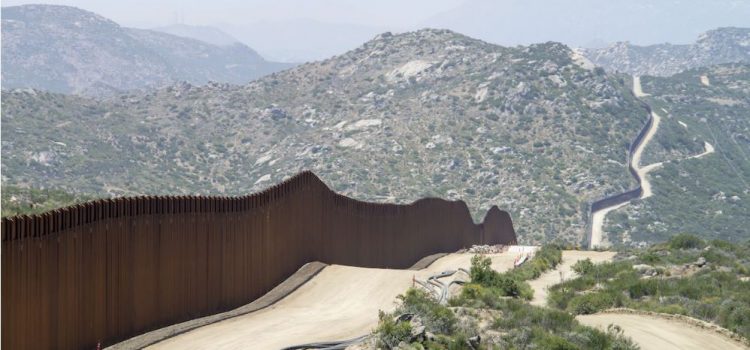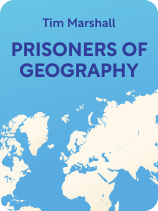

This article is an excerpt from the Shortform book guide to "Prisoners of Geography" by Tim Marshall. Shortform has the world's best summaries and analyses of books you should be reading.
Like this article? Sign up for a free trial here.
How do Russian minorities in European nations influence geopolitics? How have the borders of African nations affected people?
In Prisoners of Geography, Tim Marshall highlights the importance of human geography, showing how it shapes nations. Furthermore, he illustrates how borders that don’t take geography into account usually lead to internal conflicts.
Keep reading to learn about human geography and why it matters.
Human Geography Shapes Nations
The importance of human geography can not be understated—the geographic distribution of people within a nation can shape its politics. As Marshall notes, the dynamics between the various groups within a nation can affect its culture, policy, and conflicts.
Marshall argues that, when religious or ethnic groups who have historically engaged in conflict exist in the same geographical area, it often leads to conflict. According to Marshall, these kinds of conflicts are also likely to occur if a nation attempts to annex areas controlled by groups of people belonging to another ethnicity or religion, as those groups assert their desire for autonomy.
For instance, as China has colonized the Xinjiang region, it has been met with sometimes violent resistance from the people of the region. Since their annexation, the Uighur Muslims of Xinjiang have protested continually, demanding that they be allowed to self-govern.
On the other hand, Marshall contends that, in some cases, minority populations within one nation may become a strategic asset for another nation. For example, as Russia seeks to expand its influence across Europe, it often cites a desire to protect the interests of Russian minorities in other countries. These populations give the Russian government a foot in the door in politics and negotiations throughout the region.
(Shortform note: In 2022, the Russian state claimed its desire to protect ethnic Russians as justification for its invasion of Ukraine. However, experts note that most of Ukraine’s Russian-speaking population identifies as Ukrainian. Based on this assertion, they argue that Russia’s stated desire to protect Russians abroad is solely a strategic measure—the majority of the people in question don’t consider themselves to be Russian.)
| Diversity and Conflict The relationship between ethnic diversity and conflict is a subject of debate among experts. Some scholars have argued that conflicts that appear to be motivated by hate for an ethnic group are often caused by political and ideological differences. These authors note that international conflicts are complex, and ethnicity is just one of many factors that influence them. However, other authors note that on average, ethnically diverse societies tend to be less economically productive than relatively homogenous societies. These authors attribute this lost productivity to relatively high incidences of internal conflict in ethnically diverse societies. With respect to the conflict in Xinjiang, experts note that the Chinese government’s policies have led ethnicity to become politicized. Specifically, these experts argue that by adopting policies that economically favor the Han Chinese settlers living in the region, the Chinese state has effectively generated ethnic enmity between the two groups, adding an ethnic component to a complex economic and political conflict. |
Borders That Ignore Geography Lead to Internal Strife
As evidence for the power of geography, Marshall describes the disastrous consequences that ensue when humans ignore geography. Specifically, Marshall argues that, when humans draw borders that ignore both geography and the geographic distribution of different populations, violence and tragedy result.
As an example, Marshall cites the many borders European colonists drew during the plundering of Africa. These borders often included various groups from wholly separate cultures with no common interests and histories of conflict. Down the line, as a result of these poorly drawn borders, sectarian conflict and civil war would become common throughout the continent, as feuding groups were forced to coexist within artificially created countries.
| Borders and Global Conflict Historians point to the 1884-1885 Berlin Conference as a moment when many borders were created that would eventually lead to conflict in Africa. At the conference, delegates from across Europe, as well as from the United States and the Ottoman Empire, met to determine which parts of Africa each country would colonize. The lines drawn at the Berlin Conference cut many societies into multiple pieces—research suggests that these societies are more likely to suffer from conflict and poverty to this day. Some activists have greatly expanded on Marshall’s argument about the relationship between borders and violence. They argue that all borders, not just borders that ignore geography, lead to violence. Furthermore, they oppose the immigration systems of most countries, viewing them to be unjust. Instead, they advocate for people to be able to move across international borders without regulation. |
Exercise: What’s Your Region’s Geography?
Marshall argues that a region’s geography shapes both its economy and politics. Learn to analyze the effects of geography on the place you live.
- Consider the major geographic features of the region you live in. For example, your region might be flat or mountainous; it could be an infertile desert, or it could be well-irrigated farmland. Whatever your region’s geography is, briefly describe it below.
- What natural resources does your region produce, and what must it import? Below, briefly describe the relationship between your region’s geography and its economy. For example, if you live in an area with rich mineral deposits but little arable farmland, you might describe how your region’s wealth of minerals fuels its economy and brings in more than enough money for it to import the food it needs.
- What are your nation’s relationships with other countries within the region and beyond? Below, briefly describe how the geography of your region has shaped your nation’s politics. For example, if there are tense border disputes between nations in the region, competition for control of important trade routes and harbors, or any other form of geographical political conflict, briefly describe that conflict below.

———End of Preview———
Like what you just read? Read the rest of the world's best book summary and analysis of Tim Marshall's "Prisoners of Geography" at Shortform.
Here's what you'll find in our full Prisoners of Geography summary:
- Why some nations thrive and others struggle with poverty and inequality
- How a nation's geography determines its fate
- Why nations are always preparing for international conflict






